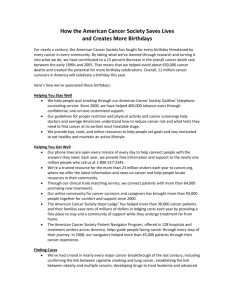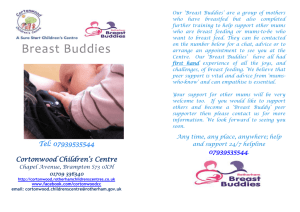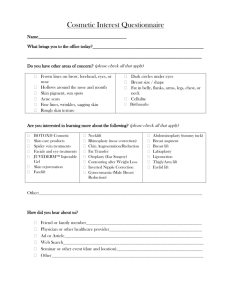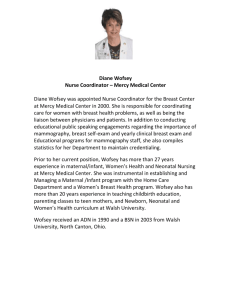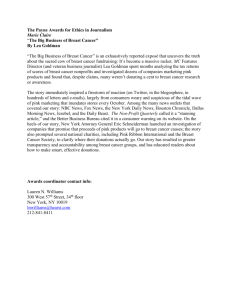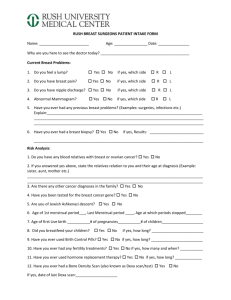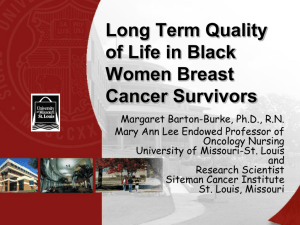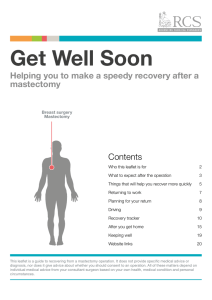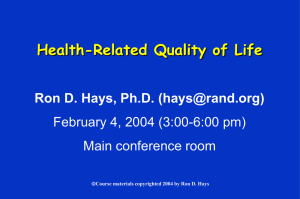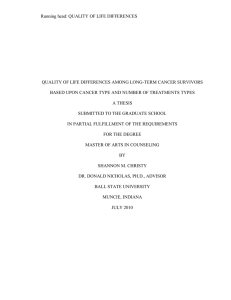Quality of Life Assessment in Survivors of Breast Cancer
advertisement
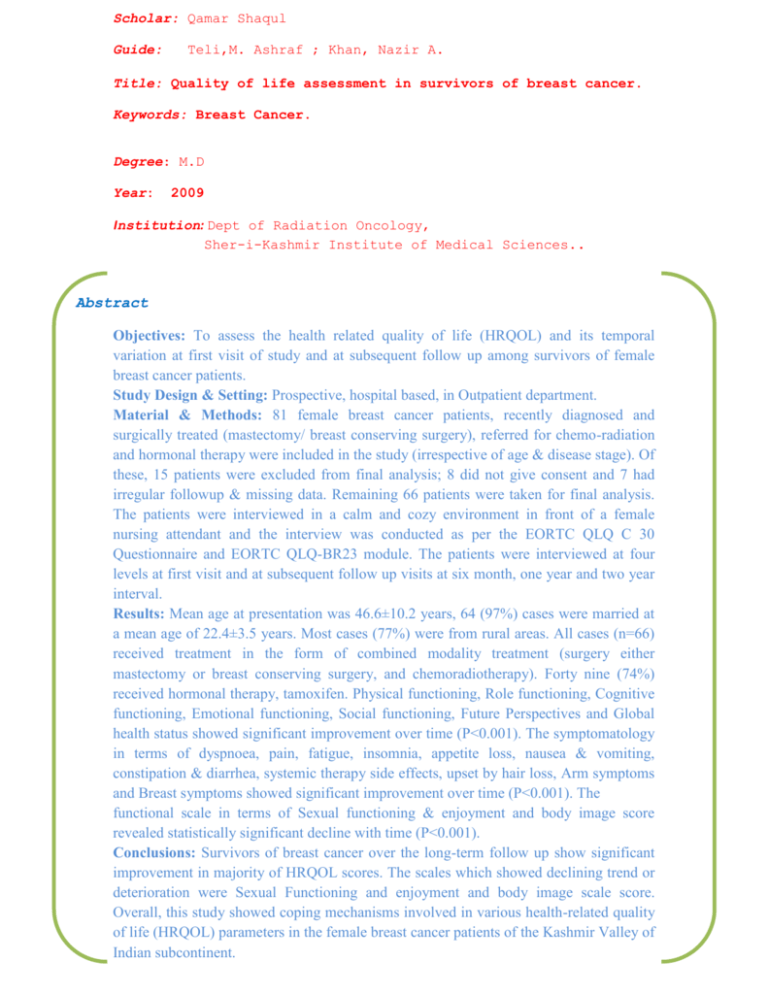
Scholar: Qamar Shaqul Guide: Teli,M. Ashraf ; Khan, Nazir A. Title: Quality of life assessment in survivors of breast cancer. Keywords: Breast Cancer. Degree: M.D Year: 2009 Institution: Dept of Radiation Oncology, Sher-i-Kashmir Institute of Medical Sciences.. Abstract Objectives: To assess the health related quality of life (HRQOL) and its temporal variation at first visit of study and at subsequent follow up among survivors of female breast cancer patients. Study Design & Setting: Prospective, hospital based, in Outpatient department. Material & Methods: 81 female breast cancer patients, recently diagnosed and surgically treated (mastectomy/ breast conserving surgery), referred for chemo-radiation and hormonal therapy were included in the study (irrespective of age & disease stage). Of these, 15 patients were excluded from final analysis; 8 did not give consent and 7 had irregular followup & missing data. Remaining 66 patients were taken for final analysis. The patients were interviewed in a calm and cozy environment in front of a female nursing attendant and the interview was conducted as per the EORTC QLQ C 30 Questionnaire and EORTC QLQ-BR23 module. The patients were interviewed at four levels at first visit and at subsequent follow up visits at six month, one year and two year interval. Results: Mean age at presentation was 46.6±10.2 years, 64 (97%) cases were married at a mean age of 22.4±3.5 years. Most cases (77%) were from rural areas. All cases (n=66) received treatment in the form of combined modality treatment (surgery either mastectomy or breast conserving surgery, and chemoradiotherapy). Forty nine (74%) received hormonal therapy, tamoxifen. Physical functioning, Role functioning, Cognitive functioning, Emotional functioning, Social functioning, Future Perspectives and Global health status showed significant improvement over time (P<0.001). The symptomatology in terms of dyspnoea, pain, fatigue, insomnia, appetite loss, nausea & vomiting, constipation & diarrhea, systemic therapy side effects, upset by hair loss, Arm symptoms and Breast symptoms showed significant improvement over time (P<0.001). The functional scale in terms of Sexual functioning & enjoyment and body image score revealed statistically significant decline with time (P<0.001). Conclusions: Survivors of breast cancer over the long-term follow up show significant improvement in majority of HRQOL scores. The scales which showed declining trend or deterioration were Sexual Functioning and enjoyment and body image scale score. Overall, this study showed coping mechanisms involved in various health-related quality of life (HRQOL) parameters in the female breast cancer patients of the Kashmir Valley of Indian subcontinent.

